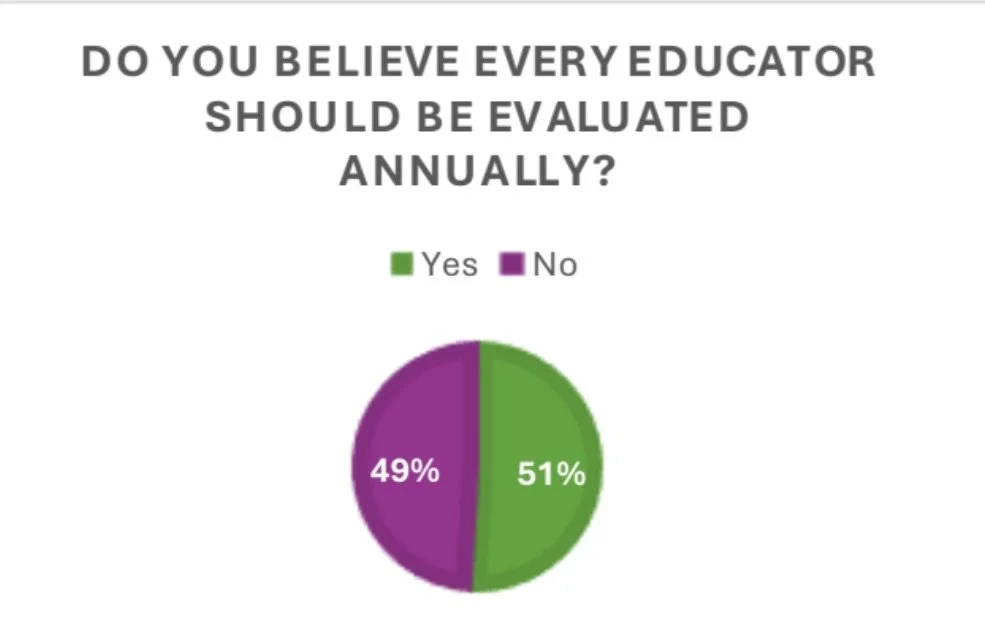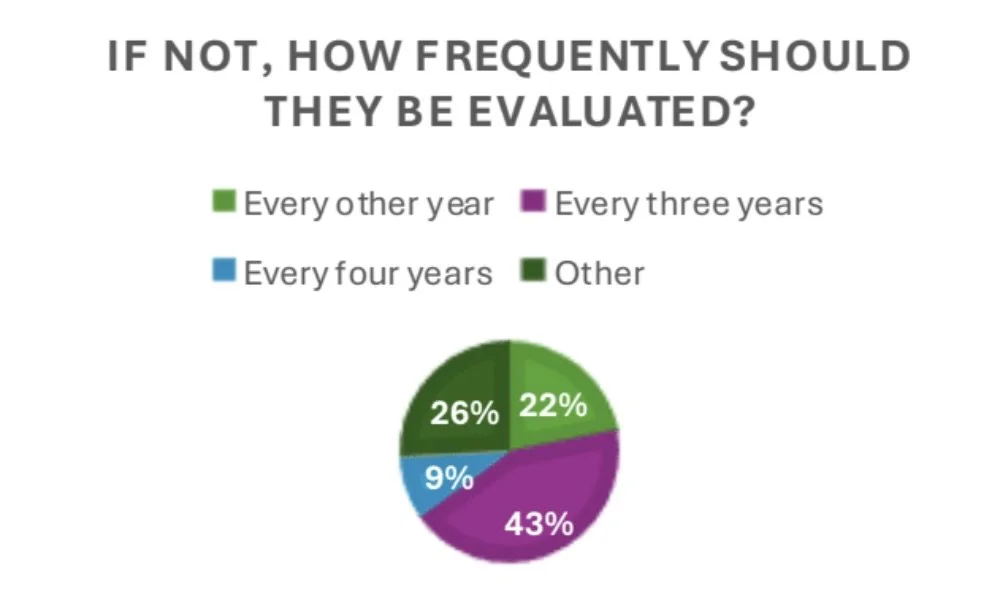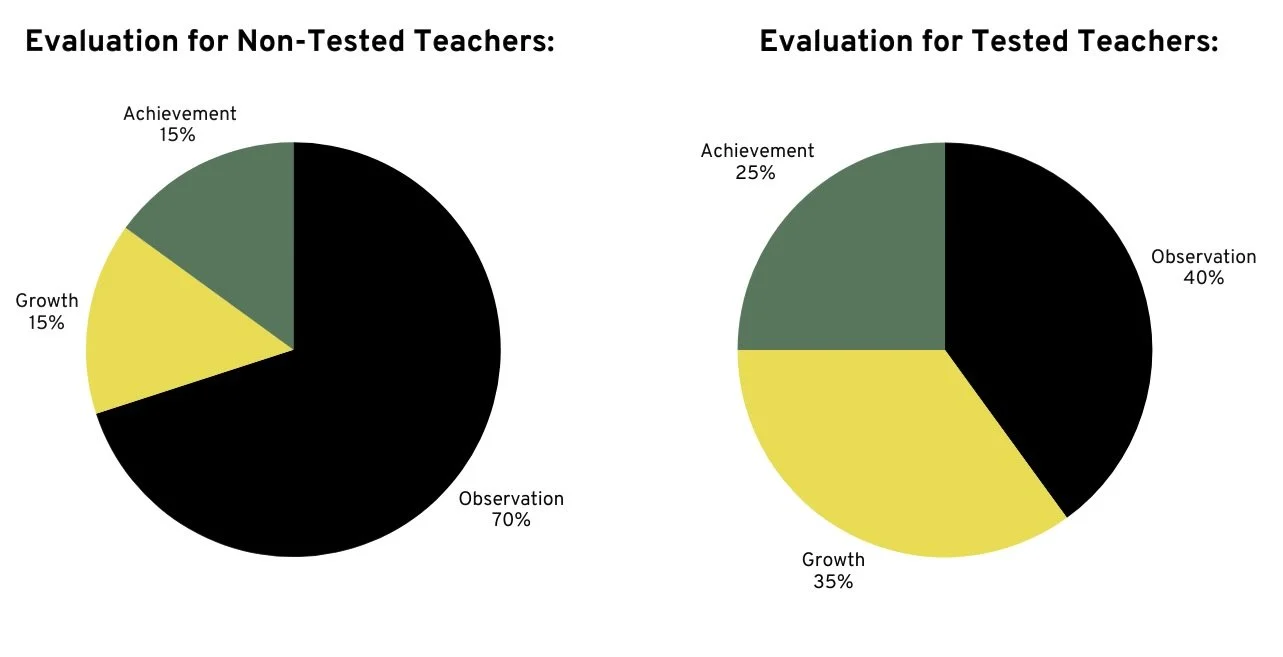Teachers Union Calls for Ending Annual Evaluations for Every Teacher, Even Though Its Own Poll Shows Most Oppose the Change
Photo by Pixabay
The Tennessee Education Association (TEA) released a series of recommendations for lawmakers to consider on Tuesday, including reductions to current requirements for teacher evaluations and testing.
The recommendations come in advance of the final meeting of the Advisory Committee on Innovations in K-12 Education on Thursday. The committee has spent the last few months holding meetings to discuss the scope and frequency of state testing, potential changes to the academic requirements for career and technical education (CTE) students, whether schools should have a minimum number of required instructional hours, and the licensure and evaluation requirements for teachers.
Members will make recommendations for the General Assembly to consider next year.
TEA Proposes Tweak to Annual Evaluations
The TEA’s recommendations for teacher evaluations could be among the most divisive, as the proposal goes beyond changes that members of the committee discussed in August.
Graphic by the TEA
Currently, all teachers are evaluated at least once a year in Tennessee. The TEA is recommending lawmakers alter that by implementing a differentiated evaluation system where more experienced teachers with receive less frequent evaluations.
“Veteran educators with consistent records of effectiveness should undergo fewer mandated evaluations, allowing administrators to focus coaching time on novice teachers, those on waivers or permits, and educators in hard-to-staff schools,” wrote the TEA.
Graphic by the TEA
Notably, this recommendation goes against the wishes of a slight majority of educators surveyed by the union. That survey found 51 percent supported preserving annual evaluations, while 49 percent wanted changes to the schedule.
The TEA did not provide a specific recommendation for how frequently it believes experienced teachers should be evaluated, but a plurality of surveyed teachers who support reducing evaluations supported a schedule of “once every three years.”
Evaluation System Credited with Student Achievement Growth
Tennessee’s evaluation system is known as the Tennessee Educator Acceleration Model (TEAM), and lawmakers implemented it in 2011 as part of an effort to reform the prior evaluation system, which only required some teachers to be evaluated twice in a decade. The Tennessee Department of Education credits TEAM with playing a “powerful” role in Tennessee becoming the fastest growing state on the National Assessment of Educational Progress (NAEP).
Under TEAM, a teacher’s overall grade is based on observation, student growth, and student achievement. Teachers who teach non-tested subjects, like art, receive 70 percent of their score from observations, while those teaching tested subjects like ELA receive 40 percent of their score from classroom observations. Non-tested teachers frequently receive their achievement and growth scores through a composite of school-level results.
Graphic by the Tennessee Firefly
The TEA is also recommending lawmakers consider reducing the impact of test results on evaluations and adding additional ways to measure teachers, including their “contributions to school culture.”
TEA Recommends Reducing Testing
Testing has been a pivotal topic for the Advisory Committee on Innovations in K-12 Education, and multiple members have expressed support for recommending reductions in the assessments local school districts require to measure student progress.
TEA leaders are supporting that change, but the union is going a step further in calling for reductions in state-mandated testing as well.
In its recommendations, the TEA says the state should roll back state-mandated testing to the minimum requirements of federal law. This would eliminate three end-of-course assessments high school students take, and it would remove the requirement for younger students to be tested in science and social studies.
“Year after year, Tennessee educators consistently point out the urgency of needed changes in public schools across the state. Our students need more time to learn, and teachers need more time to teach. The General Assembly should be looking for ways to reduce high-stakes standardized testing, allowing for more meaningful assessments that focus on student learning rather than test preparation,” said TEA President Tanya T. Coats in a news release on the union’s recommendations.
Under the current assessment system, elementary and middle school students in grades third through eighth take the Tennessee Comprehensive Assessment Program (TCAP) tests in English language arts (ELA), math, and science assessments annually. Middle school students in grades 6-8 additionally take TCAP social studies assessments. High school students take end-of-course (EOC) assessments in English I and II; Algebra I, II, and Geometry or Integrated Math I, II, and III; along with U.S. History and Biology.
Lawmakers implemented the existing system eight years ago, and much like evaluation changes, the Tennessee Department of Education credits the system with driving a “significant run” of improvements on national test rankings.
Looking Ahead
The TEA’s recommendations are among multiple proposals lawmakers on the advisory committee will receive from outside organizations in advance of Thursday’s hearing.
Recent polling of conservative voters found little support for the TEA’s recommendations to reduce testing and teacher evaluations.





